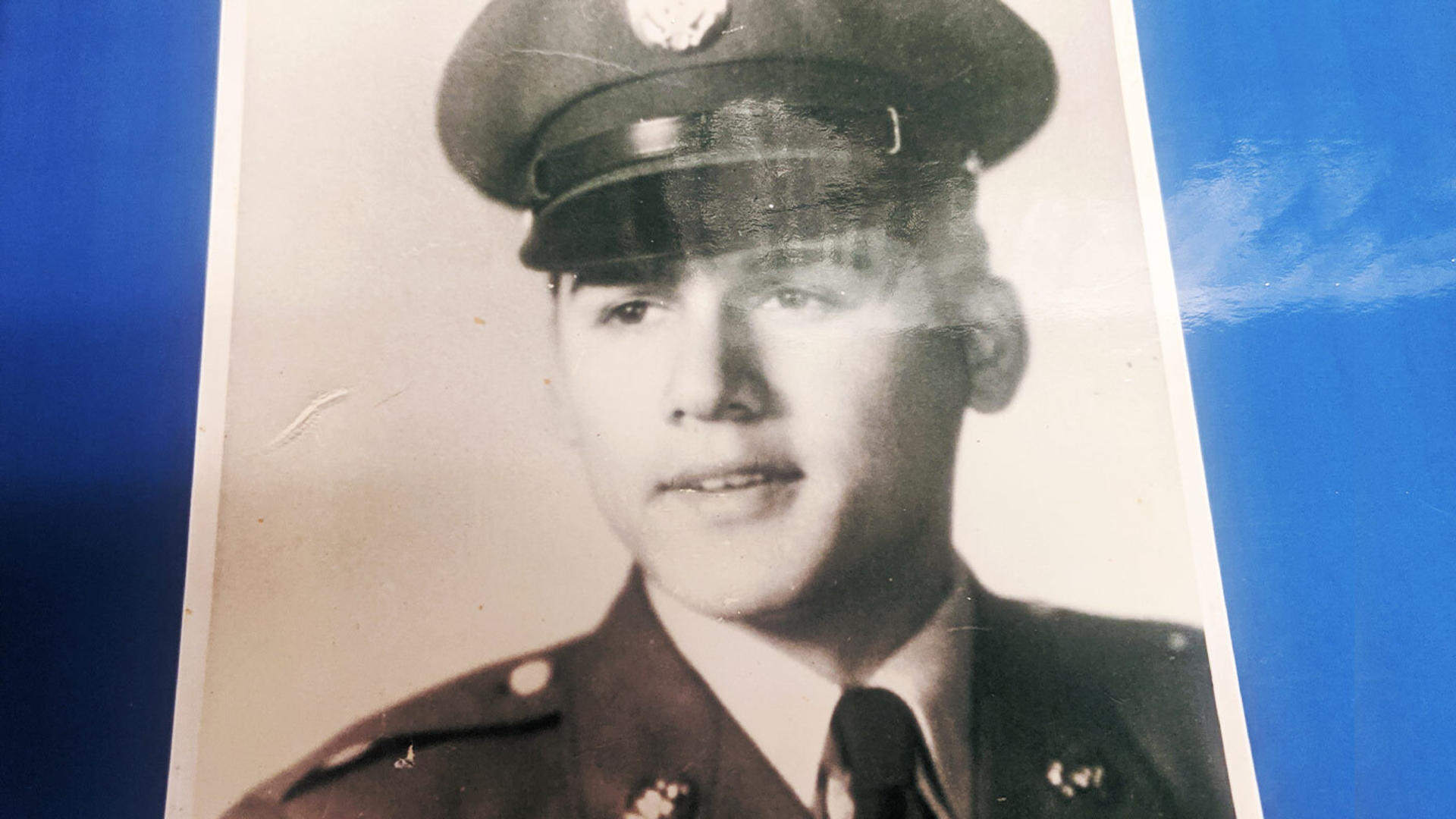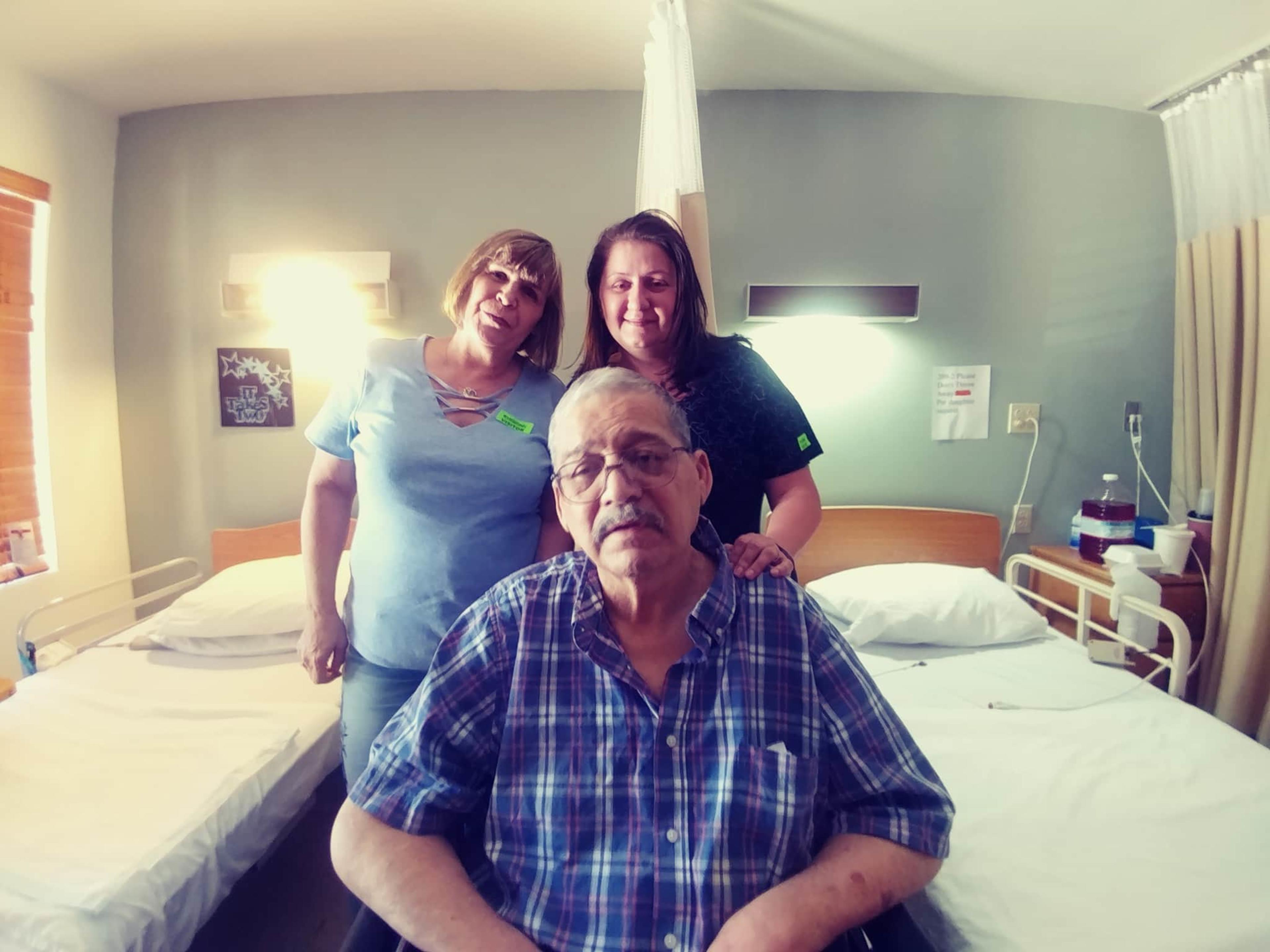Gary Sinise Foundation Pays Outstanding Bills For Grieving Los Angeles-Area Family
September 14th, 2020

The last thing on Jennifer Ruelas’ mind when her father, Henry Cordero, a Vietnam veteran, passed away this summer was paying for his outstanding healthcare bills and other expenses.
With her older brother estranged from the family, and her sister dealing with complications from chronic obstructive pulmonary disease (COPD), Ruelas resorted to the charity of friends and relatives — like she had done before when hard times befell her family.
Thousands of dollars in unpaid bills and outstanding payments piled up over the years. Ruelas, who works as a claims specialist for a medical practice in Los Angeles County, was in no position to borrow any more money than she could reasonably pay off.
The immediate priorities in the weeks following her father’s death, she reasoned, were paying the remaining balance of caregiver support and the cost of cremation. "But how? And with what money?” she thought to herself.
Henry Cordero had a difficult upbringing growing up in Los Angeles. His mother was an alcoholic, and his stepfather beat him. When he enlisted in the Army at the outset of America’s involvement in Vietnam, Henry saw the military as a means to financially support mother and escape the uncontrollable fists of his stepfather.
With one combat deployment under his belt, Henry came home in 1964, confident and with much bravado. When a friend of his invited him to come along on a double date with his girlfriend’s younger sister, he reluctantly acquiesced. He wasn’t looking to start a relationship, what with another combat deployment to Southeast Asia on the horizon.
Then he met Shirley. Blonde hair and blue eyes, she immediately caught Henry’s attention. In the weeks that followed their first date, he confided in Shirley how he felt about her. The feelings were mutual. Three years later, in 1967, they were married.
Henry hardly, if ever, spoke to his family about his military service and what he saw during two tours of Vietnam.
In the following decades, Henry pursued a career as a claims adjuster, counting 30 years with the Federal Emergency Management Agency (FEMA) — often responding to communities affected by natural disasters.
In August 2005, when Hurricane Katrina laid waste to the city of New Orleans, Henry was on the ground inspecting the insides of ruined homes as part of FEMA’s National Flood Insurance Program (NFIP). Ruelas joined her father on the trip as his assistant and recounted seeing rotting bodies in many of the homes they visited. The wreckage and hazardous environment, he told her, was reminiscent of Vietnam.
Throughout his life and into retirement, Henry made it a point of putting family first. "He went out of his way for everybody,” explained Ruelas, the youngest of three siblings. When Shirley unexpectedly passed away at the age of 50 in 1998, it left Henry devasted. True to his love for her, he remained committed to his wife’s side of the family, supporting them any way he could.
His charity, including supporting Ruelas, came at the expense of paying down debts and mortgages owed on several homes he bought years earlier for his mother, brother, and Ruelas’ family.
Henry was diagnosed with dementia in 2018, compounding an already challenging year for Ruelas and her family struggling to make ends meet. His mental and physical decline left few options for Ruelas: she became his caregiver, cutting back her hours at work, which meant sacrificing a portion of her paycheck.
His languishing memory, bouts of confusion and lethargic state, Ruelas explained to her manager, "My father is my life. He is my best friend, so when he is sick, I am going to leave. So if you guys can’t accept that, then I can’t work here.”
Ruelas was hired by Heritage Sierra Medical Group in 2018 as a temp, having spent the last decade working at Walmart as an assistant manager. She became a full-time employee only this year and so could afford a part-time caregiver for Henry, who periodically needed round-the-clock care.

Between the out of pocket costs of prescription medications and assisted living care, what remained of Henry’s monthly retirement income quickly dwindled. Ruelas had no choice but to dip into her savings. She then began setting aside several hundred dollars from each paycheck to cover the additional expenses.
For all the stress and anxiety Ruelas was under, she took respite in the quiet moments with her father. In the final months of Henry’s life, only then did he open up to her about his experiences in Vietnam.
During one of their visits, he said of his combat experience, "You know I killed a lot of people,” as if seeking forgiveness from her for his actions. Henry told her about serving on General Patton’s (the son of legendary World War Two general George S. Patton) protective detail, and how fond he was of the general who he considered a friend.
And he explained the story behind receiving the Bronze Star in 1971— during ground operations against hostile forces, he rescued a severely wounded soldier who lost both his legs to a bomb blast.
Henry passed away on July 22. "He went peacefully and didn’t suffer,” Ruelas said, who was at his bedside when he took his last breath.
Even with Ruelas and her husband both working, their two incomes were not enough to pay down Henry’s remaining medical bills. At the suggestion of a friend and with a leap of faith, she contacted the Gary Sinise Foundation in early August seeking financial assistance.
The support she received through the foundation’s H.O.P.E. initiative (heal, overcome, persevere, and excel) paid for the cremation costs and remaining caregiving fees. It was a welcome relief for the family, however fleeting.
"I’m just grateful that there’s a foundation out there that can help.”